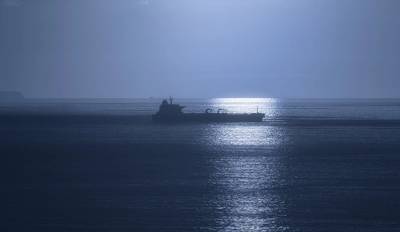Venezuela Resorts to Dark Fleet to Supply Oil to Cuba
Venezuela's state oil company PDVSA has begun using tankers that navigate off radar to supply its closest political ally, Cuba, as a fleet of state-owned vessels that have historically covered the route dwindles, according to documents and ship monitoring services.
Cuba and its main oil supplier, Venezuela, for over a decade had exclusively used their own tankers to navigate between the two countries.
Delayed maintenance, however, has taken some ships out of service and the emergence of Mexico as a new supplier to Cuba using some of the same vessels have the two revamping routes to get desperately needed crude oil and fuel to the island.
A large portion of tanker fleets owned by Venezuela and Cuba are under U.S. sanctions, which also limits their travel. Operated by third parties, dark fleet vessels often lack western insurance and send false location signals to disguise their movement.
PDVSA in June began co-loading crude and fuel oil cargoes that deliver a portion in Cuban waters, and from there depart to destinations in Asia to discharge the remaining volume, according to company shipping documents.
The vessels spoof their signal, making them look elsewhere in the Caribbean while they are discharging in Cuba, often by ship-to-ship transfers, according to monitoring service TankerTrackers.com and a satellite photo by Planet Labs seen by Reuters.
One of the vessels, the Panama-flagged Neptune 6, was last week near Cuba's Nipe Bay transferring Venezuelan heavy crude and fuel oil to Cuba-flagged vessel Esperanza, according to the documents and photo, analyzed by TankerTrackers.com. The ship's transponder is signaling a location north of Curacao since late May, according to LSEG data.
PDVSA and the foreign affairs ministries of Venezuela and Cuba did not provide comment. It was not immediately clear if the use of third-party vessels to supply Cuba is temporary.
In need of barrels
The extra vessels could help boost Venezuela's oil supply to Cuba, which so far this year is at 27,000 barrels per day (bpd), compared with 51,500 bpd in the same period of 2023.
The covert help comes as demand for electricity produced by oil-fired plants soars during sultry Cuban summers.
Blackouts that were occasional in Cuba have become routine as imported supplies are limited and logistical issues complicate domestic fuel distribution to its aging power plants.
Cuban energy officials also have said workers are tuning up and providing maintenance to power generating plants ahead of the high-demand summer season, and hope the coming months will see fewer blackouts.
Cuba has not been able to fully recover its oil storage capacity since a devastating fire destroyed a portion of the island's largest oil terminal, Matanzas. The lack of tanks forces suppliers to transfer cargoes to other ships used for floating storage by Cuba.
In May, Mexico's state company Pemex resumed oil shipments to Cuba after a three-month pause in the same vessels used to ship oil from Venezuela, Reuters reported.
(Reuters - Reporting by Marianna Parraga, additional reporting by Dave Sherwood; Editing by Marguerita Choy)














